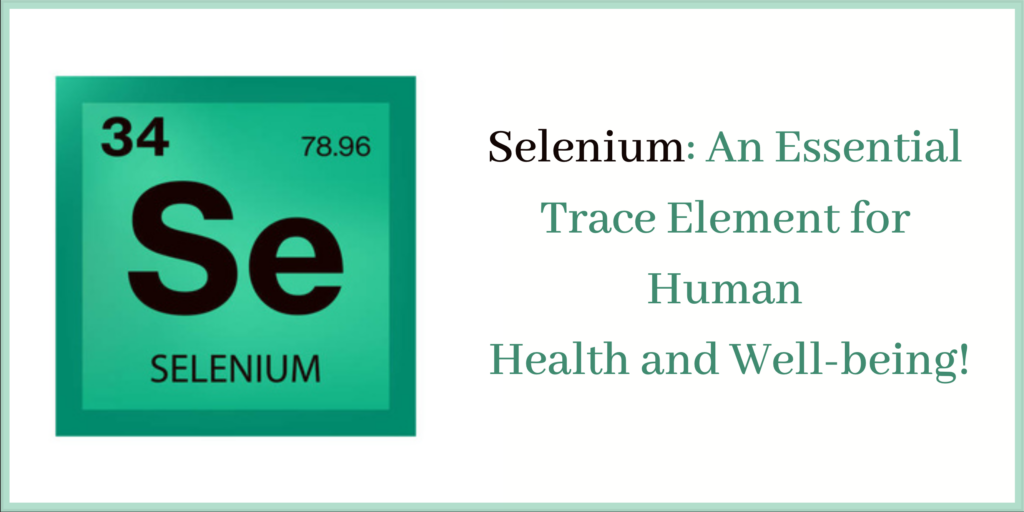Importance of selenium
A trace element called selenium is crucial for maintaining human health and well-being. It is essential for many bodily processes, such as immune system operation, thyroid hormone metabolism, and antioxidant defence. The mineral selenium has been linked to a reduced likelihood of developing specific diseases and is essential for reproductive health. Despite its significance, few people are aware of selenium’s advantages.
This blog will explore the importance of selenium in human health. We will discuss its sources, recommended daily allowance, testing for selenium status, and potential risks of deficiency or toxicity. By the end of this blog, you will better understand why selenium is such an essential nutrient for overall health.
Role of Selenium in Human Health
Selenium plays a critical role in human health and is involved in various physiological functions. One of the most vital roles of selenium is its antioxidant properties. It aids in preventing oxidative cell damage brought on by free radicals, which can result in chronic illnesses.
Also, selenium is necessary for proper thyroid hormone metabolism, affecting energy levels, metabolism, and overall well-being. Selenium also plays a key role in immune system function by supporting antibody production and enhancing immune cell activity.
Furthermore, selenium is essential for reproductive health, particularly in males, where it is involved in sperm motility and production. Other potential benefits of selenium include its anti-inflammatory properties and ability to reduce the risk of certain diseases, such as cancer and heart disease.
Sources of Selenium
Due to the importance of selenium in maintaining human health, it is essential to ensure that you get an adequate amount of this nutrient. Selenium can be obtained from both dietary sources and supplements. Some dietary sources of selenium include nuts, seafood, meat, and eggs. However, the amount of selenium in these foods can vary based on the soil and water quality of where they were grown or raised.
Supplements can also be used to ensure adequate selenium intake, but it is important to be cautious with supplement use, as too much selenium can lead to toxicity. By being mindful of your selenium intake and obtaining it from various sources, you can help support your overall health and well-being.
Selenium Deficiency
Selenium deficiency is a serious health concern that can lead to various adverse effects on the body. Causes of selenium deficiency can include poor dietary intake, soil and water quality, and certain medical conditions.
Symptoms of selenium deficiency can vary but may include muscle weakness, fatigue, hair loss, and thyroid dysfunction. Additionally, selenium deficiency has been linked to an increased risk of certain diseases, such as cardiovascular disease and certain types of cancer.
It is crucial to address selenium deficiency promptly to prevent further health complications. This can be done through increasing dietary intake or through the use of supplements under the guidance of a healthcare professional.
Selenium Toxicity
While selenium is essential for human health, too much can lead to toxicity. Causes of selenium toxicity can include excessive supplement use, high levels of selenium in the environment, and certain medical conditions.
Symptoms of selenium toxicity can range from mild, such as nail and hair changes, to severe, such as gastrointestinal distress and neurological symptoms. Selenium toxicity is sometimes linked to developing certain diseases, such as type 2 diabetes.
Monitoring your selenium intake and adhering to the suggested daily intake is crucial. By balancing your intake and being aware of potential sources of toxicity, you can help ensure the importance of selenium for your overall health and well-being.
Recommended Daily Allowance of Selenium
The recommended daily allowance (RDA) of selenium varies across different countries and organizations. For example, the RDA in the United States is 55 micrograms per day for adults, while in the European Union, it ranges from 30 to 70 micrograms per day.
Factors affecting selenium requirements include age, gender, pregnancy and lactation, and certain medical conditions. It is vital to balance your selenium intake to avoid both deficiency and toxicity. This can be done by consuming a varied diet that includes selenium-rich foods and not exceeding the recommended daily allowance for selenium.
If you are concerned about your selenium intake, speaking with a healthcare professional for personalized guidance is crucial.
Testing for Selenium Status A. Blood Tests B. Hair Analysis
To determine your selenium status, several tests can be done. One standard method is through blood tests, which can measure the selenium level in your blood. However, it is essential to note that blood levels may not necessarily reflect overall selenium status, as selenium is also stored in other tissues.
Another method is hair analysis, which can provide information about long-term selenium status. This test involves analyzing a small sample of hair for selenium content. Testing for selenium status can help identify deficiencies or toxicity and guide personalized interventions to improve overall health. By understanding the importance of selenium and your situation, you can take steps to support your health and well-being.
Conclusion
In conclusion, selenium is an essential trace element that is crucial to human health and well-being. It has antioxidant properties, is vital for thyroid hormone metabolism, and supports immune system function and reproductive health.
Selenium can be found in dietary sources and supplements, but it is important to balance intake to avoid both deficiency and toxicity. Testing for selenium status can provide valuable information about your individual needs.
By understanding the importance of selenium and taking steps to ensure adequate intake, we can support our overall health and well-being. Although selenium is only one component of the puzzle that goes into achieving optimal health, it is vital and should not be overlooked.


